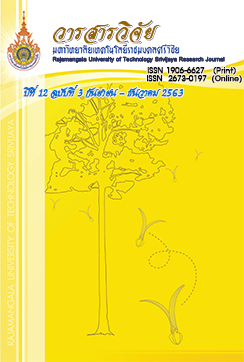Evaluation of the Efficacy of Fine Motor Skill Practice by Using Tangible User Interface through Educational Games in Children with Intellectual Disability
Keywords:
tangible user interface, fine motor skill, intellectual disability, educational gameAbstract
A variety of educational games have been designed to enhance learning for children with intellectual disabilities in various fields such as mathematics, reading, writing skills. However, developing a tangible user interface (TUI) system that encourages learning by touching and manipulating objects by creating a similar experience for interactions with real world objects, to our knowledge, has not been explored yet. Besides, in the practice of development of fine motor skill with occupational therapists, children are less likely to cooperate and must be motivated at all times. Therefore, this paper explored the use of a tangible user interface for children with intellectual disabilities for fine motor skill practice. An experiment was conducted among 60 children with intellectual disabilities and the results were compared with conventional practice with an occupational therapist.
The results revealed that children with intellectual disabilities who practiced with the TUI training system had better development of fine motor skills with higher hand force’s scores than those practiced with conventional methods. There was a significant difference in the average value of the hand’s force at the 0.05 level, and children had more interest and preferred to train with TUI than conventional methods.
References
ธานินทร์ รักสัตย์. 2549. การพัฒนาทักษะพื้นฐานทางคณิตศาสตร์เรื่อง จำนวนนับ สำหรับเด็กบกพร่องทางสติปัญญาระดับฝึกได้ ชั้นประถมศึกษาปีที่ 2 โดยใช้บทเรียนคอมพิวเตอร์. มหาวิทยาลัยเชียงใหม่. แหล่งที่มา: http://cmuir.cmu.ac.th/handle/6653943832/12149, 2 กรกฎาคม 2560.
นพวรรณ ศรีวงค์พานิช, ชนิสา เวชวิรุฬห์, วันทนี ผลสมบูรณ์, จันทร์เพ็ญ ธัชสินพงษ์, กิ่งสร เกาะประเสริฐ, ธีรพล เชื้อสุข, อนัญญา อนุพรวัฒนากิจ และ สุภาภรณ์ ระยันต์. 2560. บกพร่องทางสติปัญญาเรื่องภาวะบกพร่องทางสติปัญญา / ภาวะปัญญาอ่อน. แหล่งที่มา: http://rajanukul.go.th/main/_admin/images/groupreview/groupreview0000008.pdf, 2 กรกฎาคม 2560.
ผดุง อารยะวิญญู. 2542. การเรียนร่วมระหว่างเด็กปกติกับเด็กที่มีความต้องการพิเศษ. โรงพิมพ์รำไทยเพรส จำกัด, กรุงเทพฯ.
เยาวพา เดชะคุปต์. 2528. กิจกรรมสำหรับเด็กก่อนวัยเรียน. โอเดียนสโตร์, กรุงเทพฯ.
สุรางค์ สุวรรณหล่อ. 2546. การใช้บทเรียนคอมพิวเตอร์ช่วยสอนเพื่อการเรียนรู้คำศัพท์ภาษาอังกฤษ ของนักเรียนชั้นประถมศึกษาปีที่ 2. มหาวิทยาลัยเชียงใหม่. แหล่งที่มา: http://archive.lib.cmu.ac.th/full/T/2546/edel0546ss_abs.pdf, 2 กรกฎาคม 2560.
American Psychiatric Association. 2013. Neurodevelopmental Disorders, pp.31-86. In American Psychiatric Association. Diagnostic and statistical manual of mental disorders 5th ed. (DSM-5). American Psychiatric, Washington DC.
Black, B. and Wood, A. 2003. Utilizing Information Communication Technology to Assist the Education of Individuals with Down Syndrome. The Down Syndrome Educational Trust, Hampshire.
Choosri, N., Pookao, C., Swangtrakul, N. and Atkin, A. 2017. Tangible interface for stimulating child language cognitive skill. IADIS International Journal on WWW/Internet 15(2): 17-31.
Jeong, D., Kerci, E. and Lee K. 2010. TaG-Games: Tangible geometric games for assessing cognitive problem-solving skills and fine motor proficiency, pp. 32-37. In IEEE International Conference on Multisensor Fusion and Integration for Intelligence Systems. University of Utah, Salt Lake City, USA.
Felix, V., Mena, L., Ostos, R. and Maestre, G. 2017. A pilot study of the use of emerging computer technologies to improve the effectiveness of reading and writing therapies in children with Down syndrome. British Journal of Educational Technology 48(2): 611-624.
Guerrero, J.J., Guerrero, L., López, G., Cáliz, D. and Bravo, J. 2015. Creating TUIs using RFID sensors - A case study based on the literacy process of children with Down syndrome. Sensors (Basel) 15(7): 14845-14863.
Downloads
Published
How to Cite
Issue
Section
License
The content and information in the article published in Journal of Rajamangala University of Technology Srivijaya It is the opinion and responsibility of the author of the article. The editorial journals do not need to agree. Or share any responsibility.







